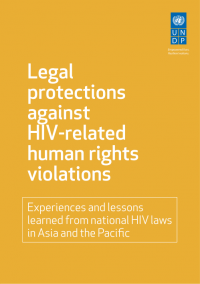Capacity-builder of NGOs in Asia Welcomes Charmain Mohamed to Team (New York, June 24, 2013)–
The health and human rights capacity-builder Asia Catalyst announced today that Charmain Scheherazade Mohamed will join the organization as executive director. Asia Catalyst’s core work includes coaching, non-profit survival skills, research and advocacy.
Ms. Mohamed has a long and distinguished history as a human rights activist and humanitarian advocate, with senior positions at Human Rights Watch, with the United Nations, and with the Norwegian Refugee Council. She has more than 15 years’ professional experience, most of which has been spent working on critical human rights issues in Asia.
“Across Asia, the need for training and capacity-building for non-profits is growing,” said Yvonne Chan, chair of the board of directors of Asia Catalyst. “We are delighted Charmain Mohamed will be leading our incredibly talented team in building a robust and sustainable network of civil society organizations across the region.”
Asia Catalyst has pioneered training and professionalization for non-profits, training dozens of leaders on the right to health, human rights and basic organizational skills. The organization’s flagship three-volume publication, “Know It, Prove It, Change It,” has become a field manual for non-governmental organizations in Asia and is available in English, Thai, Chinese and soon, Burmese.
During the search for a new executive director, Andrea Worden headed Asia Catalyst on a transitional basis as acting executive director. Worden, a respected expert, lawyer, and advocate focused on human rights and rule of law in China, will be joining Asia Catalyst’s board of directors.
“Asia Catalyst is deeply grateful to Andrea Worden, who has done a terrific job helming the organization while the board of directors conducted the search for the permanent executive director,” said Chan. “We are thankful for Andrea’s expertise, training and support to our staff and cohort of Asian advocates.”
“Asia Catalyst has a gifted and enthusiastic management team that is making a difference across Asia,” said Chan. “Charmain Mohamed is a recognized leader in the global human rights movement; we’re thrilled to welcome her to the Asia Catalyst family.”
About Asia Catalyst
Asia Catalyst was founded by Dr. Sara “Meg” Davis in 2006 with an initial grant of $50,000. Since then, the organization has provided capacity-building training and support to dozens of grassroots groups in China and Southeast Asia, and has published eight human rights reports. Today the organization has an annual budget of nearly $1 million, five full-time staff and three part-time staff. Staff leadership includes Brian Bonci, the director of finance and operations, Gisa Dang, China program director, and Shen Tingting, the advocacy director. Key publications include “Know It, Prove It, Change It: A Rights Curriculum for Grassroots Groups,” and several reports on HIV/AIDS and human rights in Asia.
Asia Catalyst’s mission is to work with grassroots groups from marginalized communities in East and Southeast Asia that promote the right to health, and to help those partners become leading advocates at the local, national and global levels.
For more information, please see www.asiacatalyst.org.

 In its recently released follow-up study to the report on the Global Commission on HIV and the Law: Risks, Rights and Health (July 2012), the UNDP finds that HIV-related anti-discrimination laws and their enforcement are failing to provide adequate human rights protection for people living with HIV (PLHIV) in the Asia-Pacific region. The report, titled Legal protections against HIV-related human rights violations: Experiences and lessons learned from national HIV laws in Asia and the Pacific, surveys laws in the Asia-Pacific region meant to provide legal protections for people living with HIV/AIDS and, the gap between these laws and their enforcement. According to Shiba Phurailatpam, Regional Coordinator of the Asia-Pacific Network of People Living with HIV and AIDS (APN+), who is quoted in the press release: “The report’s findings demonstrate the urgent need for practical measures to be taken to ensure people who experience violations can access the legal system to claim their rights.” He urged governments and donors in the region “to help strengthen access to justice and legal empowerment among people living with HIV.”
In its recently released follow-up study to the report on the Global Commission on HIV and the Law: Risks, Rights and Health (July 2012), the UNDP finds that HIV-related anti-discrimination laws and their enforcement are failing to provide adequate human rights protection for people living with HIV (PLHIV) in the Asia-Pacific region. The report, titled Legal protections against HIV-related human rights violations: Experiences and lessons learned from national HIV laws in Asia and the Pacific, surveys laws in the Asia-Pacific region meant to provide legal protections for people living with HIV/AIDS and, the gap between these laws and their enforcement. According to Shiba Phurailatpam, Regional Coordinator of the Asia-Pacific Network of People Living with HIV and AIDS (APN+), who is quoted in the press release: “The report’s findings demonstrate the urgent need for practical measures to be taken to ensure people who experience violations can access the legal system to claim their rights.” He urged governments and donors in the region “to help strengthen access to justice and legal empowerment among people living with HIV.”


